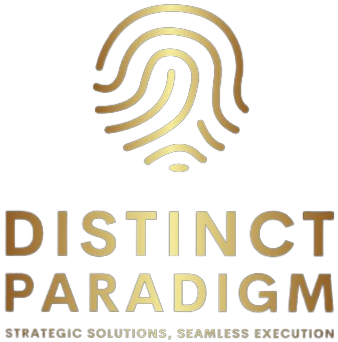By, Natalia Jimenez, | Distinct Paradigm, L.L.C.
Multiple organizations make a critical mistake by initiating their transformation journey through technological means. The result? Misaligned initiatives, wasted investments, and frustrated teams. A successful transformation starts by first focusing on people and processes. The technological aspect serves to enable change but should not function as the main driver.
The Pitfalls of a Tech-First Mindset
Transformation initiatives that start with tool or platform acquisitions fail to clarify the problems organizations need to address. Such implementations result in employees refusing to use complex systems and lead to the automation of faulty processes while creating solutions which conflict with cultural norms. The result is digital noise, not digital transformation.
The Harvard Business Review published research which confirmed that organizations achieved better digital initiative returns after they implemented cultural and operational changes before implementing new tools (in “Digital Transformation Is Not About Technology”).
People, Process, THEN Technology
The People–Process–Technology framework represents a proven methodology which organizations use strategically. Employees need to embrace changes because they become the backbone of sustaining new approaches. Organizations need to synchronize their operational procedures with strategic objectives and real-world operational requirements. Technology becomes effective after the establishment of supportive structures through people and process optimization.
Implementing processes first helps organizations prevent the automation of inefficient operations. The process-first approach enables organizations to define their workflows and eliminate unnecessary steps while creating user-friendly technology solutions which support their mission and requirements.
Lessons from the Field
Consider the following: A federal contractor redesigned its project intake process before deploying its new project management platform. The organization achieved better adoption rates and reduced administrative work by 30% after first working with cross-functional teams to streamline reviews and identify process bottlenecks.
Contrast that with the following: A government agency implemented AI-based analytics without providing training or use-case clarity which resulted in the tool remaining inactive. The tool sat unused, its potential unrealized.
Lead with Intentional Design
In today’s fast-paced business environment, many are tasked with providing quick, solution-oriented answers, often in the form of technical solutions. The tendency to “plug and play” often creates obstacles to maintainable change. Transformation architects must begin by listening to current people and process operations as well as determine the current and desired technological landscape before making any improvements. You have to go slow to go fast.
The foundation should be established before implementing technological solutions. Technology functions as a refined driving force which advances a prepared organization through its mission.

